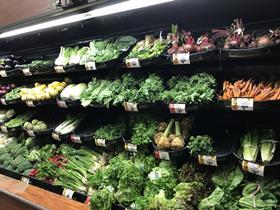
Consumers and retailers should focus on increasing sales of loose produce as a way of driving down food waste, operational consultant Newton has urged.
The company’s business manager Tom Elton said buying loose rather than prepacked fruits and vegetables was “the single biggest thing consumers can do to combat food waste”, adding that loose options arerelatively widely available on basic items, especially in larger stores.
“This action will encourage retailers to respond to demand by devoting more shelf space to loose products, or items in smaller packs,” he said.
“While retailers may be reluctant to do this as they are likely to achieve higher total sales if consumers continue to buy larger packs, smaller pack sizes tend to have a larger margin, so they will gain some of this sales loss back in profitability.”
Research by Newton, which advises businesses on how they can minimise food waste, found that 52 per cent of consumers want the option of buying loose fruit and vegetables, or to buy in smaller portions (45 per cent).
Waste reduction charity Wrap reports that households throw away approximately 7.1 million tonnes of food each year, while a further 3.1m t is thrown away having gone out of date on shelves in stores or in the supply chain.
Meanwhile, University of Edinburgh research claims the UK is still wasting 4.5m t of food, simply because it does not meet strict specifications for its shape or size.
Many supermarkets have implemented waste reduction campaigns and ranges, including Morrisons’ extensive Wonky range, Tesco with Perfectly Imperfect, Lidl’s Too Good to Waste vegetable boxes and Asda’s Wonky Veg Boxes.
However, a YouGov survey of 4,000 consumers commissioned by Newton last year revealed that 92 per cent of respondents feel supermarkets could do more to combat food waste, with 69 per cent citing the sale of imperfect fresh produce as the top method of preventing produce from being thrown away.



